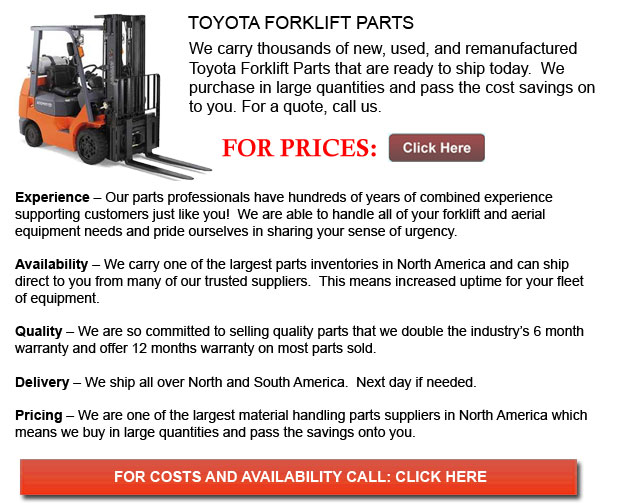
Toyota Forklift Part - In the U.S., Toyota Materials Handling inc., or TMHU, has been the best selling lift truck provider since 1992. Proudly celebrating more than 40 years of operations, the Irvine, California established company provides a comprehensive line of quality lift vehicles. Thanks to their history of superiority, reliability, and resilience, Toyota remains prevalent in this competitive market. Quality is the keystone of Toyota's notorious Toyota Production System practiced at all manufacturing facilities, including TIEM, which is stands for Toyota Industrial Equipment Manufacturing, situated in Columbus, Indiana. The bulk of the Toyota lift trucks sold in the U.S.A are manufactured here.
Every one of Toyota's manufacturing facilities within Canada and the United States comply with the International Organization for Standardization or ISO 14001 standard. TIEM has been honored many times for its dedication to continual development, and its environmental methods. It is the first and only maker to offer EPA and CARB-certified Compressed Natural Gas powered lift trucks on the market. For example, the Toyota 8-Series IC lift vehicles emit 70 percent fewer smog forming emissions than the existing centralized EPA standards and have complied with California's strict emission standards and regulations.
TMHU, U.S.A. - Leading the Industry
Brett Wood, President of TMHU, associates Toyota's success to its robust dedication to manufacture the best quality lift trucks at the same time as delivering the utmost customer service and assistance. "We must be able to learn and predict the needs of our customers," said Brett Wood. "As a leader, our success also depends on our ability to address our customers' operational, safety and environmental cost issues." TMHU's parent company, Toyota Industries Corporation, also known as TICO, is listed in Fortune Magazine as the world's leading lift truck provider and is among the magazines celebrated World's Most Admired Companies.
Redefining Environmental Accountability
Toyota Industries Corporation, as the parent company, has instilled a rich corporate doctrine of environmental stewardship in Toyota. Not a lot of other organizations and no other lift truck maker can match Toyota's record of caring for the natural environment while simultaneously stimulating the economy. Environmental accountability is an important characteristic of corporate decision making at Toyota and they are proud to be the first and only manufacturer to offer UL-listed, EPA - and CARB -certified Compressed Natural Gas powered lift vehicles. Yet an added reason they remain a leader within the industry.
In 2006, Toyota released the 8-Series line. The 8-Series signifies both Toyota's innovation and leadership in the industry. It features an exclusive emission system that surpasses Federal EPA emission principles, and also meets California's more elaborate 2010 emission standards. The end invention is a lift truck that produces 70 percent fewer smog forming emissions than the existing Federal standards allow.
Moreover in 2006, Toyota established a partnership with the Arbor Day Foundation, furthering their responsibility to the environment. Upwards of 57,000 trees have been planted in district parks and national forests damaged by natural causes such as fires, as a product of this partnership. 10,500 seedlings have also been spread through Toyota Industrial Equipment's system of dealers to non-profit organizations and neighborhood consumers to help sustain communities all over the U.S.
Toyota's lift trucks provide improved output, visibility, ergonomics and durability, and most notably, the industry's leading safety technology. The company's System of Active Stability, also referred to as "SAS", helps limit the risk of mishaps and accidental injuries, and increasing productivity levels while minimizing the likelihood of merchandise and equipment breakage.
System Active Stability senses several conditions that may lead to lateral volatility and possible lateral overturn. When one of those conditions are detected, SAS instantly engages the Swing Lock Cylinder to steady the rear axle. This adjusts the lift truck's stability footprint from triangular in shape to rectangular, offering a major increase in stability which substantially reduces the probability of a mishap from a lateral overturn. The Active Mast Function Controller or the Active Control Rear Stabilizer also assists to avoid injuries or accidents while adding stability.
The SAS systems were originally used on the 7-Series internal combustion lift trucks which were put on the market in 1999. These systems helped push Toyota into the lead for industry safety standards. Now, SAS is utilized on virtually every modern internal combustion models and is standard equipment for the new 8-Series. There are more than 100,000 SAS-equipped lift trucks in operation, exceeding 450 million hours combined. The increased population of SAS-equipped vehicles in the field, along with obligatory worker instruction, overturn fatalities across all brands have decreased by 13.6% since 1999. Additionally, there has been an overall 35.5% decrease in industry wide collisions, loss of control, falls and tip overs from a lift vehicle for the same period.
Toyota's pattern of brilliance reaches far beyond its technological achievements. The company maintains an extensive Operator Safety Training curriculum to help purchasers meet OSHA standard 1910.178. Training services, video lessons and an assortment of resources, covering a broad scope of subjects-from personal safety, to OSHA rules, to surface and load situations, are available through the supplier network.
Toyota has maintained a permanent presence in the United States ever since its first sale. In 2009, Toyota Industrial Equipment Manufacturing, created its 350,000th lift vehicle. This fact is demonstrated by the statistic that 99% of Toyota lift trucks bought in America at the moment are manufactured in the United States.
Situated in Columbus, Ind., the Toyota Industrial Equipment Mfg. campus equals 998,000 square feet of facilities across 126 acres. Facilities include a National Customer Center, as well as production operations and distribution centers for equipment and service parts, with the total commitment exceeding $113 million dollars.
The modern NCC was built to serve TMHU clients and dealers. The facility includes a 360-degree showroom, a presentation theater complete with stadium seating for 32, an section for live product demonstrations with seating capacity for 120; a presentation theater; Toyota's Hall of Fame showcasing Toyota's history since the birth of its creator, Sakichi Toyoda, in 1867, and lastly a training center.
TMHU has 68 official industrial equipment dealers, along with 189 dealership locations throughout the United States, providing the most comprehensive and inclusive customer support and customer service in the industry. The company's new and Certified Used lift vehicles, service, components, and financing capabilities make Toyota dealerships a one-stop shop to ensure total client satisfaction.
![]() Click to Download the pdf
Click to Download the pdf
Forklift Parts
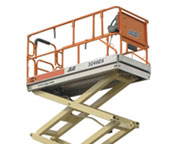
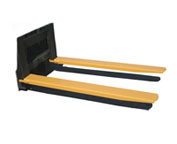
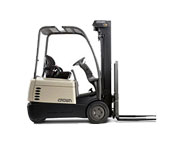
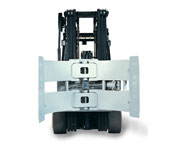
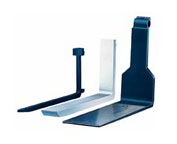
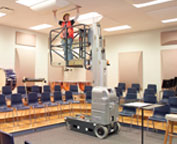
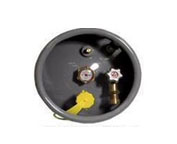
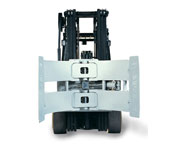
Lift Parts Express
TOLL FREE: 1-888-695-7994
LOCAL: 909-265-9036
985 KENDALL DR A-306
San Bernardino, California
forkliftpartssanbernardino.com
Email Us
About Us


